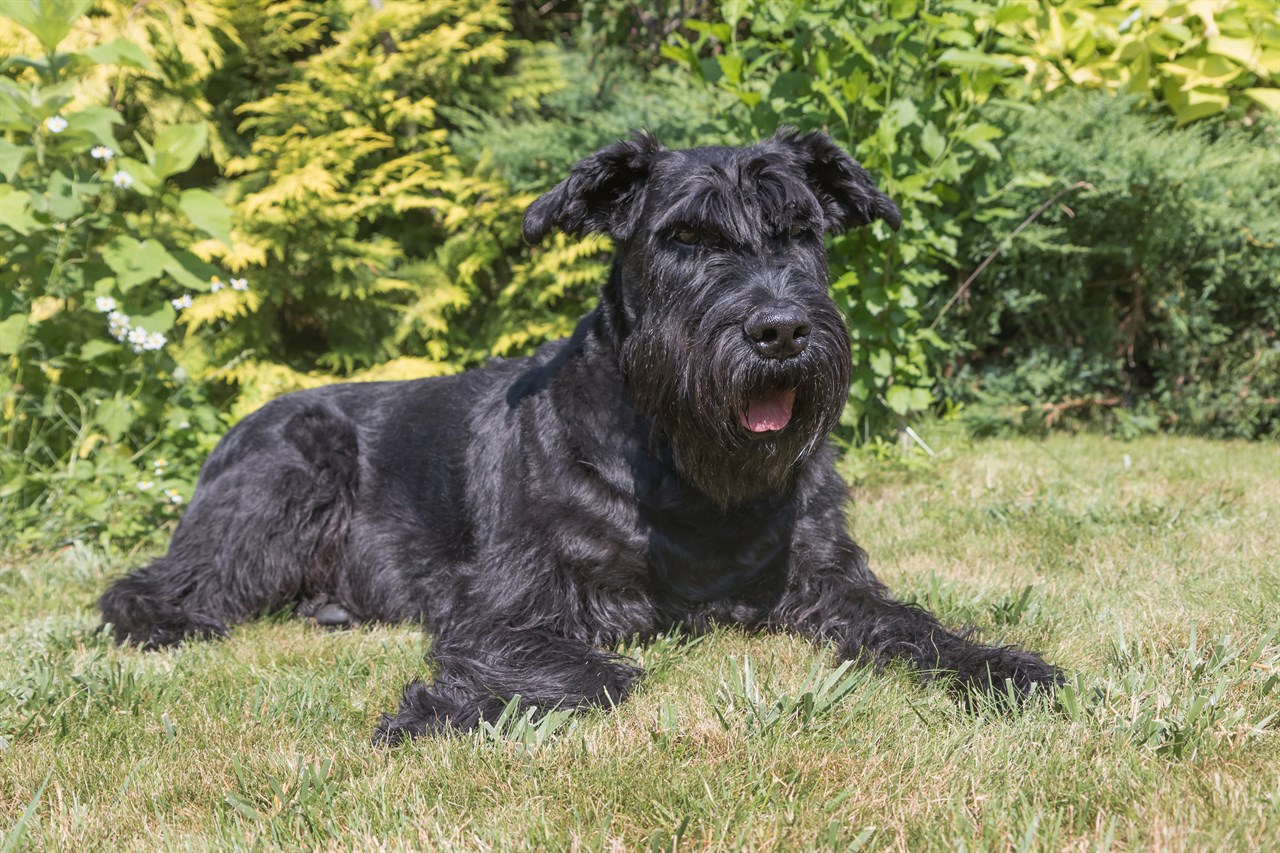Challenges of Giant Schnauzer Ownership: Navigating the Downsides

While the Giant Schnauzer is a remarkable and loyal breed, like any dog, they come with their set of challenges. Prospective owners should be aware of these potential downsides to make informed decisions about bringing a Giant Schnauzer into their home.
Size and Strength
The large size and strength of the Giant Schnauzer can pose challenges, especially for owners who may not be prepared for handling a dog of this stature. Proper training and leash control are crucial to manage their strength during walks or interactions.
Exercise Needs
Giant Schnauzers have high energy levels and require substantial daily exercise. Failing to meet their activity needs can lead to boredom, restlessness, and potentially destructive behaviours. Prospective owners should be prepared to dedicate time to regular exercise and mental stimulation.
Grooming Requirements
The breed's distinctive double coat requires regular grooming to prevent matting and maintain overall coat health. Giant Schnauzers need periodic grooming sessions, including brushing, trimming, and care for their facial hair. This can be time-consuming and may require professional grooming services.
Guardian Instincts
While their protective nature can be an asset, Giant Schnauzers may exhibit overprotective behaviours without proper socialisation and training. Early and ongoing training is essential to ensure that their protective instincts are appropriately directed.
Potential for Anxiety
Giant Schnauzers, being highly intelligent and sensitive, may be prone to anxiety if left alone for long periods without proper training and preparation. Addressing potential anxiety issues requires a commitment to training and creating a secure environment.
Destructive Behaviour
If not provided with sufficient mental stimulation and exercise, Giant Schnauzers may resort to destructive behaviours such as chewing furniture or digging. Owners should be prepared to invest time in engaging activities to prevent boredom-related issues.
Socialisation Needs
Early and thorough socialisation is crucial for Giant Schnauzers to ensure they are well-adjusted and comfortable in various environments. Lack of socialisation may lead to fearfulness or aggression towards unfamiliar people or situations.
Health Concerns
Like many large breeds, Giant Schnauzers may be prone to certain health issues, including hip dysplasia, bloat, and eye conditions. Regular veterinary check-ups and preventive care are essential to address potential health concerns.
Potential for Dominance
Giant Schnauzers, with their strong personalities, may exhibit dominant behaviours if not properly trained and provided with clear leadership. Owners should establish themselves as the pack leader through consistent and positive training.
Expense of Ownership
The cost of owning a Giant Schnauzer can be relatively high. This includes expenses for quality food, grooming supplies or professional grooming services, veterinary care, and potential training classes. Prospective owners should be financially prepared for the responsibilities of dog ownership.
Conclusion
While the Giant Schnauzer is a magnificent and loyal companion, potential owners should be aware of the challenges associated with their size, energy levels, grooming requirements, and need for training. With commitment, patience, and proper care, many of these challenges can be effectively managed, leading to a rewarding relationship with this majestic breed.
Schnauzer (Giant) puppies for sale
- Find Schnauzer (Giant) puppies for sale in ACT
- Find Schnauzer (Giant) puppies for sale in NSW
- Find Schnauzer (Giant) puppies for sale in NT
- Find Schnauzer (Giant) puppies for sale in QLD
- Find Schnauzer (Giant) puppies for sale in SA
- Find Schnauzer (Giant) puppies for sale in TAS
- Find Schnauzer (Giant) puppies for sale in VIC
- Find Schnauzer (Giant) puppies for sale in WA